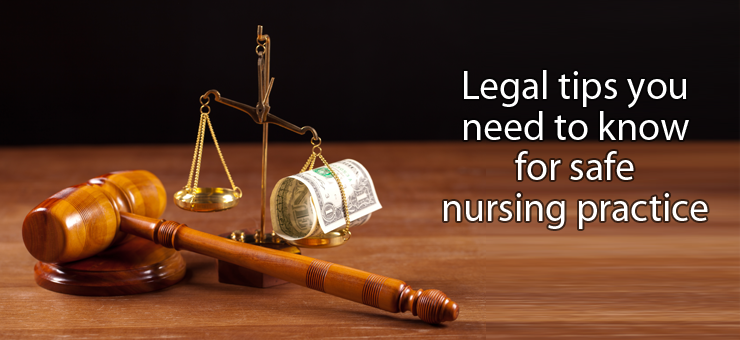Nursing includes a variety of specialties and definitions that usually differ from one country to another. Broadly defined, a nurse is a person who is formally trained to take care of the sick and the disabled. But nursing is not just about that. It has many other facets related to healthcare, such as prevention of diseases, monitoring, caring and advising people with specific health conditions like pregnancy, etc.
Nurses must exercise a high degree of caution, especially when caring for unstable patients. An incident such as a patient falling can result in significant injury and numerous legal complications. For example, if a patient sustains a head injury, it can lead to traumatic brain injury litigation.
Nursing standards today are in accordance with the latest scientific literature, state and federal laws, court decisions, nursing practice acts, The Joint commission, the ANA organizations and other organizations offering special certifications, procedures and policies, as well as job descriptions. This is a universal recognition of nursing practice, including nursing diagnosis, planning, evaluation and implementation.
Here are seven legal tips that will help you practice nursing safely.
1) Properly administering medications
This includes knowing a drug’s purpose and action, knowing the appropriate dosage, understanding administration routes and being ready for possible contraindications and adverse reactions. Traditionally, the five rules of thumb include right patients, right med, right dose, right time and right route. A nurse is usually the last check before a patient takes on drugs. Hence it is crucial for them to catch possible errors by a pharmacist or physician. Such errors could occur due to the use of illegible penmanship, banned abbreviations, clarification failures or transcription errors.
2) Check for and identify deterioration
Per safe nursing standards, it is crucial to check on your patient continually. Lots of legal actions taken against nurses are due to the allegations of failure to check or find new changes in a patient’s health conditions. This is popularly known as ‘failure to rescue’. So, any small change in the patient’s health is to be reported immediately to the physician.
3) Effective communication
When elaying the patient’s condition to another individual, (possibly a patient’s relative or friend or the patient itself) effective and informative communication is very important. Your listening skills ought to be sharp as well. Patients with limited proficiency of your preferred language must be offered interpreters. This is very much a part of the standard care in the nursing law books.
4) Assign responsibilities
Nurses must assign responsibilities appropriately and also supervise people carrying out assignments. That calls for leadership skills like knowing who has the best competencies and skills to meet patient requirements. It would be smart to delegate tasks that are frequently recurring, with standard procedures, minimum changes, predictable results and minimum risks. Here, the five rules of thumb are right person, right circumstance, right task, right directions followed by right supervision.
5) Preparing documents that are time-based and accurate
These are equally crucial as they can be utilized as possible evidence in legal proceedings to determine whether or not a medical care delivered meets the legal care standards.
6) Knowing and following procedures and policies of your facility
The pre-defined policies and procedures for any medical case must be updated on a regular basis. These policies and procedures of your facilities are the basis or standards for which you can be held legally responsiblein a court.
7) Using all the equipment properly
Ensure you are properly trained on the equipment to be used, or else it could lead to disaster. Today, with the steady and fast growth of technology in hospitals this will become increasingly important. Hence sound knowledge of equipment is a must.
As per RN Risk Management – Sara Heinlein, “the procedures are the same, no matter whether you process them on papers or in a computer.”
Monitoring and properly communicating with a physician, documenting all the details, like the whereabouts of the physician, communication between the nurse and the physician and timely documentation, are standard procedures.
According to a saying “Medical documentation must paint a picture of medical care”. Good grammar, correct spelling and professional writing are part and parcel of the game. Some Adult Journal Club nurses also believe that actively taking part in chart audits makes them a better charter. They recommend all nurses to practice audit charts.
So there you see some legal tips for safe nursing care practice. For those of you looking forward to take up a career in nursing, this can be extremely useful. All the best!
